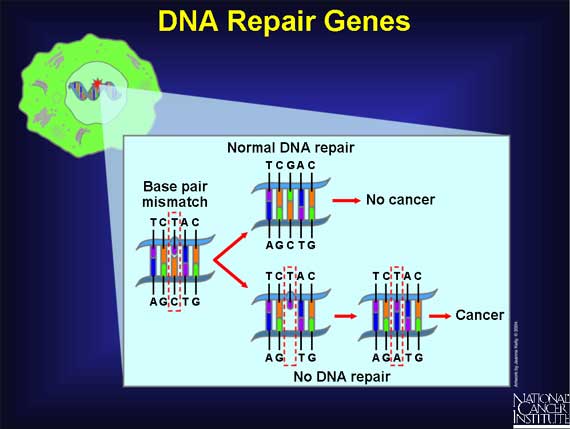|
A third type of genes implicated in cancer are called "DNA repair genes." DNA repair genes code for proteins whose normal function is to correct errors that arise when cells duplicate their DNA prior to cell division. Mutations in DNA repair genes can lead to a failure in repair, which in turn allows subsequent mutations to accumulate. People with a condition called xeroderma pigmentosum have an inherited defect in a DNA repair gene. As a result, they cannot effectively repair the DNA damage that normally occurs when skin cells are exposed to sunlight, and so they exhibit an abnormally high incidence of skin cancer. Certain forms of hereditary colon cancer also involve defects in DNA repair.

< Previous | Index | Next Slide > |